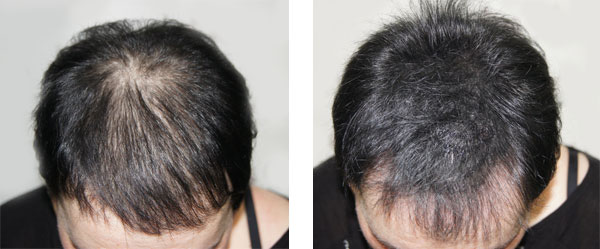Hair loss affects millions of people. While male and female pattern baldness are well known, other hormonal changes can also lead to significant shedding. In addition to genetics and menopause, there are many types of hormonal hair loss causes. Various hormonal imbalances play a role in thinning hair. Recognizing these less common causes is essential for finding effective solutions.
Unknown Hormonal Hair Loss Causes
Polycystic Ovary Syndrome
PCOS often causes hair loss in women. This endocrine disorder leads to higher levels of androgens, including testosterone. Those male hormones can shrink hair follicles on the scalp, resulting in female pattern hair loss or widespread thinning. Treating the underlying syndrome is the first step to addressing such hormonal hair loss causes.
Thyroid Imbalance Effect on Hair
The thyroid gland controls many functions in the body, including hair growth. Both an overactive thyroid and an underactive thyroid disrupt the hair growth cycle. These imbalances often cause hair to look thin and brittle. Early diagnosis and proper management of thyroid levels are crucial for preventing further loss.
Stress Tops Hormonal Hair Loss Causes
Cortisol, the body’s main stress hormone, also affects hair. When stress is chronic, cortisol levels remain high. Elevated cortisol can force hair follicles into a prolonged resting phase, causing increased shedding known as telogen effluvium. Lowering stress and balancing cortisol levels are vital for promoting regrowth.
Insulin Resistance Affects Hair Health
Insulin resistance, a precursor to type 2 diabetes, can impact hair health as well. High insulin levels may boost androgen production, creating a hormonal environment similar to that seen in PCOS and leading to thinning hair. Controlling blood sugar and improving insulin sensitivity is important for maintaining healthy hair follicles. That’s how you can manage such types of hormonal hair loss causes.
Medication-Induced Hair Loss
Certain medications can trigger hormonal shifts that cause hair loss. For example, some birth control pills may lead to shedding. Other drugs can affect thyroid function or alter stress hormone levels. It is important to discuss potential side effects with a doctor. Awareness of medication-induced hair loss helps in choosing the right treatment path.
Managing Hormonal Hair Loss Causes With SMP
Navigating hormonal hair loss can be challenging, and many treatments aim to stimulate regrowth with mixed results. For those seeking an immediate and reliable outcome, scalp micropigmentation offers a permanent alternative.
This cosmetic procedure uses tiny pigment dots tattooed onto the scalp to mimic hair follicles, giving the appearance of a fuller head of hair. Scalp micropigmentation works for all types of hair loss, covering thinning spots, receding lines, and even complete baldness. Its lasting nature means less ongoing concern. Advantages include an instant visual effect, a consistent and natural-looking hairline, minimal maintenance, and a noninvasive process without surgery.
Choosing the Right SMP Artist
But it all boils down to choosing the right SMP practitioner in Arizona. Growing SMP popularity has brought an influx of tattoo artists into SMP mainstream even without specialized training.
Tattoo artists experienced in body art may lack the necessary skills for SMP. Factors, such as pigment depth, dot size, and hairline design, require precise technique. An untrained practitioner risks creating an unnatural result. Research thoroughly by reviewing portfolios and reading client testimonials. Investing in a professional Arizona SMP specialist ensures a flawless, undetectable outcome.
Find the best at DermiMatch Clinic in Arizona. Schedule your first consultation now if you are fighting hormonal hair loss.

